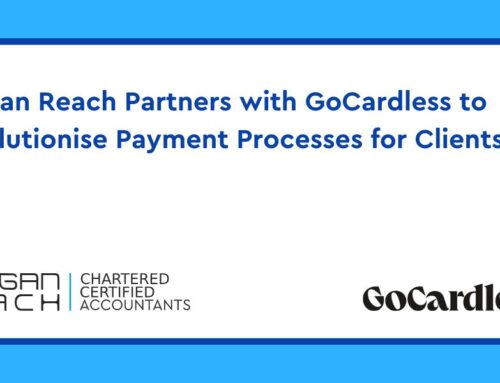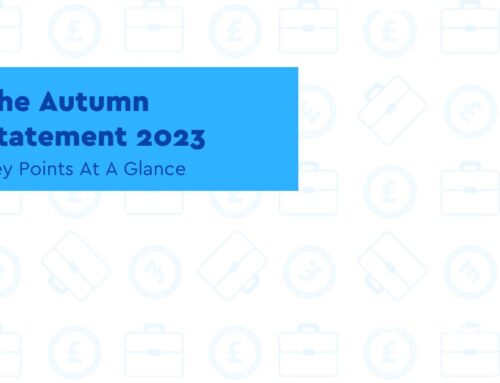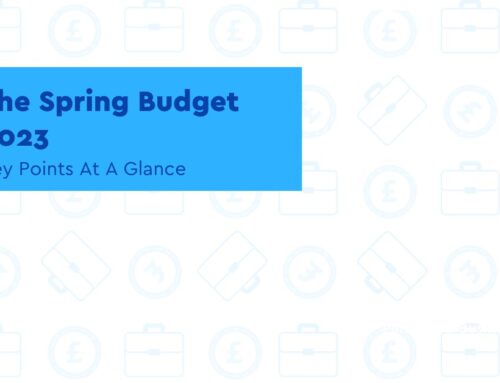News – Employers
Recent guidance affecting employers from April 2022
Key Points
- The DWP confirmed there will be no change to the Auto-enrolment thresholds
- There are categories of earners will not pay the Health and Social Care Levy
- These include individuals under the age of 21 earning less than £50,270 and apprentices under the age of 25 earning less than £50,270
At the end of January and beginning of February, the government made an unusually large number of payroll-related announcements.
Here is a summary of some of the latest changes and guidance for those operating and advising on payroll in 2022/23.
Auto-enrolment thresholds unchanged
Under automatic enrolment, employers must enrol all workers into a workplace pension if they satisfy the age and earnings criteria. The Department for Work and Pensions has confirmed there will be no change to the thresholds.
For 2022/23:
- The automatic enrolment (AE) earnings trigger will remain at £10,000;
- The lower limit of the qualifying earnings band (QEB) will remain at £6,240; and
- The upper limit of the QEB will remain at £50,270.
The AE QEB lower limit will diverge in 2022/23 from the NIC lower earnings limit (which will increase to £6,396). However, the NIC upper earnings limit (UEL) will be frozen at £50,270 in 2022/23, so the AE upper limit of the QEB and NIC UEL will continue to align.
Employer guidance updates
HMRC issued CWG2: further guide to PAYE and National Insurance contributions 2022/23 and CWG5: Class 1A National Insurance contributions on benefits in kind 2022/23 on February 1, 2022.
The Health and Social Care Levy Act 2021 provides for a new levy based on National Insurance contributions (NICs) and will be introduced as a temporary uplift of 1.25% in NICs rates for 2022 to 2023 tax year. It will affect the rate of employees primary Class 1 NICs, plus employers secondary Class 1 NICs, Class 1A NICs and Class 1B NICs.
Recent updates to CWG2 confirm that employers who employ the following categories of earners will not pay the Health and Social Care Levy:
- Apprentices under the age of 25 earning less than £50,270
- Individuals under the age of 21 earning less than £50,270
- Veterans earning less than £50,270
- Freeport employees earning under £25,000
CWG5 contains references to and many examples that relate to the 2019/20 and 2020/21 tax years.
Claiming NIC relief for employing veterans
Even though employers have to operate payroll in real time, written claims by post will be required for national insurance contributions (NIC) relief for veterans for 2021/22.
A zero-rate of NIC was introduced in April 2021 for employers of qualifying veterans. However, for the 2021/22 tax year, employers had to pay secondary class 1 NIC as normal. HMRC has now released guidance on the written process for employers to reclaim that 2021/22 NIC from April 6, 2022, whereby the relief will apply in real time by using a new NI category letter V for qualifying veterans.
End of year payroll processes
As an employer running payroll, you need to report to HMRC on the previous tax year (which ends on April 5) and give your employees a P60.
If you run more than one payroll under the same PAYE scheme reference (for example for employees you pay weekly and monthly), include the end-of-year information in your last payroll report.
Your last FPS or Employer Payment Summary (EPS) of the year (up to and including April 5, 2022) needs to include an indicator that you are making the final submission. This tells HMRC you have sent everything you expected to send and they can finalise their records for you and your employees.
You also need to prepare to give your employees a P60 if they are in your employment on April 5, 2022. You have got until May 31, 2022 to do this.
This article was derived from ICAEW: https://www.icaew.com/insights/tax-news/2022/feb-2022/What-is-changing-for-employers-from-April
News – Motoring Taxation
Government urged to reform motoring taxation
Key Points
- The government is considering a national road pricing scheme to help recover money currently raised through motoring tax
- Fuel and excise duty currently raises £35 billion a year, which goes towards maintaining and developing roads across the UK
Driving on Britain’s roads could get more expensive as the government considers ways to recover funds lost in tax as people switch to electric vehicles.
With the UK government’s commitment to ban the sale of new petrol and diesel vehicles by the end of 2030, there will be a huge financial hole in public finances with a loss of funds from Vehicle Excise Duty (VED) – known as car tax – and fuel duty.
MPs say the UK must introduce road pricing
The government is considering a national road pricing scheme to help recover money currently raised through motoring tax.
This comes as a new report into road pricing, published by the House of Commons’ Transport Select Committee on 4 February 2022, says the ‘situation is urgent’.
Fuel and excise duty currently raises £35 billion a year, which goes towards maintaining and developing roads across the UK.
MPs say the government must act now and there’s now ‘no viable alternative to a road pricing system’. The report adds that the government should begin developing a solution to motoring taxation by the end of 2022.
The government has two months to respond to the report.
Zero emission vehicles and road pricing
This report follows last year’s proposals from Greener Transport Solutions, a not-for-profit group, which were published as part of the government’s inquiry into zero emissions vehicles and road pricing.
The proposals say road pricing is “the most effective way to tackle road congestion and pollution, and now there is a fiscal imperative.
Higher rates proposed for vans and lorries
The Greener Transport Solutions proposals say that drivers should pay for the roads through a scheme calculated on a vehicle’s weight as well as mileage.
Car drivers would be charged a flat rate of 2p a kilometre, while heavier vehicles would be subject to higher rates. It proposes a rate of 3p for vans and 6p for lorries.
It’s also suggested that these rates should increase to take into account axle weight and wear and tear to the road surface.
Incentivising a switch to electric vehicles
Not paying VED and fuel duty is one of the main incentives for consumers to make the switch to an electric vehicle (EV), although MPs have warned this isn’t enough to meet the ambitious targets for phasing out petrol and diesel cars.
Ultimately, the green transport group says more needs to be done to encourage people to buy an EV to avoid a ‘Big Bang’ in 2030. Their proposals include:
- Discounts on the cost of EVs if people opt-in to a road pricing scheme before 2030[Text Wrapping Break]
- Similar discounts on second-hand EVs[Text Wrapping Break]
- Money towards an EV if you scrap your current vehicle and it’s more than 10 years old[Text Wrapping Break]
It’s important to note that this is only a proposal, and the government hasn’t yet indicated how they plan to balance motoring taxation and this commitment to the green agenda.
RAC Foundation director Steve Gooding said: “Drivers choosing to go electric deserve to know what is coming next – particularly if the promise of cheap per-mile running costs is set to be undermined by a future tax change.”
Meanwhile Silviya Barrett, head of policy at the Campaign for Better Transport, said: “Road pricing, based on distance travelled and how polluting a vehicle is, can be a fairer system for everyone.”
This article was derived from Simply Business: https://www.simplybusiness.co.uk/knowledge/articles/2021/05/is-pay-per-mile-road-pricing-back-on-the-agenda/
News – Business Investment
A super deduction successor could trigger £40bn a year boost for UK business investment, say CBI
Key Points
- More than half of survey respondents took advantage of the super deduction to increase or accelerate capital investment plans.
- With the scheme set to end in 2023, there is a risk business investment could tail off at a crucial time
Introducing a new permanent investment deduction to succeed the Government’s super deduction could boost UK business investment by up to £40billion a year by 2026, according to a new CBI survey.
Data compiled from 325 firms – of all sizes and sectors of the economy – suggests the super deduction has spurred investment and that a permanent incentive could trigger an annual 17% uplift in capital spending. This could turbo-charge growth ambitions, helping raise productivity and improve living standards across all UK nations and regions.
The CBI survey reveals more than half of respondents took advantage of the super deduction – or plan to do so – to increase or accelerate capital investment plans.
However, with the scheme set to end in 2023, there is a risk business investment could tail off at a crucial time, when the OBR is projecting post-recovery economic growth levelling out at a modest 1.3-1.7%.
The recent Bank of England forecast is more pessimistic still, expecting growth of only 1.0% in 2024. In the CBI’s own economic forecast, business investment is expected to fall in spring 2023, once the super deduction ends.
The business group is urging the Government to create a permanent 100% tax deduction for capital spending in the year of expenditure at this year’s Spring Statement, helping to sustain business investment throughout 2023 and ushering in a 17% rise in business investment over the medium-term.
If the super deduction expires without a successor, the CBI forecasts the UK will remain the lowest in the G7 for business investment by 2026. Implementing a permanent investment deduction would lift us off the bottom, fuelling higher growth and productivity across the UK. Longer term, increasing productivity is the only sustainable way to pay down debt and meet rising spending pressures.
Tony Danker, CBI Director-General, said, “The Chancellor’s super deduction exemplified the boldness in public policy that we need to inspire investment and get the economy moving. Going by our survey results, it looks to be a real success. It’s started the job but cannot be a one-hit wonder. Evolving the policy from short-term fix into long-term strategy will give firms confidence that Government and industry are aligned.
“The UK is facing the highest tax burden in decades. But by rewarding firms who put money into their operations, we can unleash new innovation and productivity – the ingredients we need to escape the low-growth trap and build a stronger, sustainable and more equitable economic future.”
This article was derived from London Loves Business: https://londonlovesbusiness.com/a-super-deduction-successor-could-trigger-40bn-a-year-boost-for-uk-business-investment-say-cbi/
News – Business Support
£850m Covid-19 support grants still available
Key Points
- Hospitality, leisure and accommodation businesses can still apply for one-off cash grants of up to £6,000 through the Omicron Hospitality and Leisure Grant scheme
- The one-off grants of up to £6,000 for eligible businesses in the hospitality and leisure sectors, depend on rateable value
Businesses across the country are being encouraged to apply for remaining grant funding from local authorities to help them through the pandemic.
£850m worth of Covid-19 support grants are still available and firms in England are being encouraged to apply, said Business Minister Paul Scully.
Hospitality, leisure and accommodation businesses can still apply for one-off cash grants of up to £6,000 through the Omicron Hospitality and Leisure Grant scheme.
The funding is made up of £556m available through the £635m Omicron Hospitality and Leisure Grant (OHLG) scheme, which launched in January 2022, and a further £294m through the Additional Restrictions Grant (ARG) scheme which has been paying out funding since November 2020.
The Omicron scheme provides businesses in the hospitality, leisure and accommodation sectors with one-off grants of up to £6,000 per premise. The
scheme will close for applications on March 18, 2022 and all final payments must be made and dispersed to recipients by March 31, 2022.
The one-off grants of up to £6,000 for eligible businesses in the hospitality and leisure sectors, depend on rateable value:
– Businesses with a rateable value of £51,000 or above: £6,000
– Businesses with a rateable value between £15,000 and £51,000: £4,000
– Businesses with a rateable value of £15,000 or below: £2,667
To provide further support to other businesses, the ARG scheme provides councils with funding they can allocate at their discretion to businesses most in need, such as personal care businesses and supply firms.
Small business minister Paul Scully said: ‘Eligible businesses should apply as soon as possible for the grants available to help them put the pandemic behind them and get on a sounder footing.’
Omicron Hospitality and Leisure Grant (OHLG)
To be eligible your business must offer in-person services where the main service and activity takes place in a fixed rate-paying premises, in the hospitality, leisure and accommodation sectors.
The following eligibility criteria will apply:
- You must be registered as a business rates payer in Gateshead on 30 December 2021
- You were trading from your premises in Gateshead on 30 December 2021
- The business has not exceeded the permitted state-aid and subsidy thresholds
- The business must not be in administration, insolvent or where a striking off notice has been made
he following types of business are excluded from the definition of a leisure business for this scheme:
- Retail businesses
- Coach tour operators
- Tour operators
- Gyms and sports businesses where physical exercise or training is conducted on an individual basis or group basis[Text Wrapping Break]
For the purpose of the OHLG scheme, an accommodation business can be defined as a business whose main lodging provision is used for holiday, travel or other purposes.
The following types of businesses are excluded from the definition of accommodation for this scheme:
- Private dwellings
- Education accommodation
- Residential home
- Care home
- Residential family centres
- Beach huts
Omicron Additional Restrictions Grant
Hospitality and leisure businesses and direct suppliers to hospitality and leisure businesses that have not been able to apply for a COVID19 related cash grant since 30 December 2021 may now apply to this scheme if they meet all the other eligibility criteria set out in this guidance.
For the purposes of this scheme hospitality and leisure businesses are defined as:
- Hospitality definition: a business whose main function is to provide a venue for the consumption and sale of food and drink. Takeaways are excluded from this definition.
- Leisure definition: a business that provides opportunities, experiences and facilities, in particular for culture, recreation, entertainment, celebratory events, days and nights out, betting and gaming. Note: Gyms, dance and fitness studios and sports businesses where physical exercise or training is conducted on an individual basis or group basis are excluded from the definition of leisure.
- Accommodation definition: a business whose main lodging provision is used for holiday and travel. Self-catering and accommodation providers must be registered with the council.
Retail and personal care businesses are not in the scope of this grant.
Businesses eligible to apply must:
- Have been trading on 30 December 2021, and
- Be located in the borough of Gateshead, and
- Occupy commercial premises, and
- Be able to demonstrate the severe impact on the business due to the COVID19 restrictions, including a significant fall in income
Visit your local council’s website to find out how to apply.
This article was derived from Accountancy Daily and gov.uk
News – Business Support
£850m Covid-19 support grants still available
Key Points
- Hospitality, leisure and accommodation businesses can still apply for one-off cash grants of up to £6,000 through the Omicron Hospitality and Leisure Grant scheme
- The one-off grants of up to £6,000 for eligible businesses in the hospitality and leisure sectors, depend on rateable value
Businesses across the country are being encouraged to apply for remaining grant funding from local authorities to help them through the pandemic.
£850m worth of Covid-19 support grants are still available and firms in England are being encouraged to apply, said Business Minister Paul Scully.
Hospitality, leisure and accommodation businesses can still apply for one-off cash grants of up to £6,000 through the Omicron Hospitality and Leisure Grant scheme.
The funding is made up of £556m available through the £635m Omicron Hospitality and Leisure Grant (OHLG) scheme, which launched in January 2022, and a further £294m through the Additional Restrictions Grant (ARG) scheme which has been paying out funding since November 2020.
The Omicron scheme provides businesses in the hospitality, leisure and accommodation sectors with one-off grants of up to £6,000 per premise. The
scheme will close for applications on March 18, 2022 and all final payments must be made and dispersed to recipients by March 31, 2022.
The one-off grants of up to £6,000 for eligible businesses in the hospitality and leisure sectors, depend on rateable value:
– Businesses with a rateable value of £51,000 or above: £6,000
– Businesses with a rateable value between £15,000 and £51,000: £4,000
– Businesses with a rateable value of £15,000 or below: £2,667
To provide further support to other businesses, the ARG scheme provides councils with funding they can allocate at their discretion to businesses most in need, such as personal care businesses and supply firms.
Small business minister Paul Scully said: ‘Eligible businesses should apply as soon as possible for the grants available to help them put the pandemic behind them and get on a sounder footing.’
Omicron Hospitality and Leisure Grant (OHLG)
To be eligible your business must offer in-person services where the main service and activity takes place in a fixed rate-paying premises, in the hospitality, leisure and accommodation sectors.
The following eligibility criteria will apply:
- You must be registered as a business rates payer in Gateshead on 30 December 2021
- You were trading from your premises in Gateshead on 30 December 2021
- The business has not exceeded the permitted state-aid and subsidy thresholds
- The business must not be in administration, insolvent or where a striking off notice has been made
The following types of business are excluded from the definition of a leisure business for this scheme:
- Retail businesses
- Coach tour operators
- Tour operators
- Gyms and sports businesses where physical exercise or training is conducted on an individual basis or group basis[Text Wrapping Break]
For the purpose of the OHLG scheme, an accommodation business can be defined as a business whose main lodging provision is used for holiday, travel or other purposes.
The following types of businesses are excluded from the definition of accommodation for this scheme:
- Private dwellings
- Education accommodation
- Residential home
- Care home
- Residential family centres
- Beach huts
Omicron Additional Restrictions Grant
Hospitality and leisure businesses and direct suppliers to hospitality and leisure businesses that have not been able to apply for a COVID19 related cash grant since 30 December 2021 may now apply to this scheme if they meet all the other eligibility criteria set out in this guidance.
For the purposes of this scheme hospitality and leisure businesses are defined as:
- Hospitality definition: a business whose main function is to provide a venue for the consumption and sale of food and drink. Takeaways are excluded from this definition.
- Leisure definition: a business that provides opportunities, experiences and facilities, in particular for culture, recreation, entertainment, celebratory events, days and nights out, betting and gaming. Note: Gyms, dance and fitness studios and sports businesses where physical exercise or training is conducted on an individual basis or group basis are excluded from the definition of leisure.
- Accommodation definition: a business whose main lodging provision is used for holiday and travel. Self-catering and accommodation providers must be registered with the council.
Retail and personal care businesses are not in the scope of this grant.
Businesses eligible to apply must:
- Have been trading on 30 December 2021, and
- Be located in the borough of Gateshead, and
- Occupy commercial premises, and
- Be able to demonstrate the severe impact on the business due to the COVID19 restrictions, including a significant fall in income
Visit your local council’s website to find out how to apply.
This article was derived from Accountancy Daily and gov.uk
New HMRC Advisory Fuel Rates published
HMRC has published new Advisory Fuel Rates (AFRs) effective from Tuesday (March 1) for company car drivers claiming back fuel costs from their employer.
Petrol and diesel pence per mile (PPM) rates for all three engine-size ranges have stayed the same.
There was just one rate change for LPG-powered vehicles. The new LPG reimbursement rate for vehicles up to 1,400cc is 8ppm, down from 9ppm. It remains at 10ppm for vehicles with an engine size of 1,401-2,000cc and at 15ppm for LPG vehicles with an engine greater than 2,000cc.
Hybrid cars are treated as either petrol or diesel cars for AFR purposes.
Final claims for the Statutory Sick Pay Rebate Scheme
The Statutory Sick Pay Rebate Scheme will close on March 17, 2022. Employers will have until March 24, 2022 to submit any new claims for absence periods up to March 17 or to amend claims you already submitted.
You will no longer be able to claim back Statutory Sick Pay (SSP) for employees’ coronavirus-related absences or self-isolation that occur after March 17, 2022.
From March 25, HMRC will return to the normal SSP rules, which means employers can revert to paying SSP from the fourth qualifying day their employee is off work regardless of the reason for their sickness absence. For more information on SSP rules, search for ‘Statutory Sick Pay (SSP): employer guide’ on GOV.UK.
Get In Touch
At Morgan Reach, we understand every business needs a little help now and again-especially when it comes to the financial side of things. Therefore, to help our clients and visitors we endeavour to cover as much of the business news as possible. If you are self-employed or run a business and need assistance and advice on how these news could make a difference to you or your business, feel free to get in touch with the experts at Morgan Reach. Our business growth experts at Morgan Reach will guide you through what support is available for you or your business as well as the latest news that may affect you.







